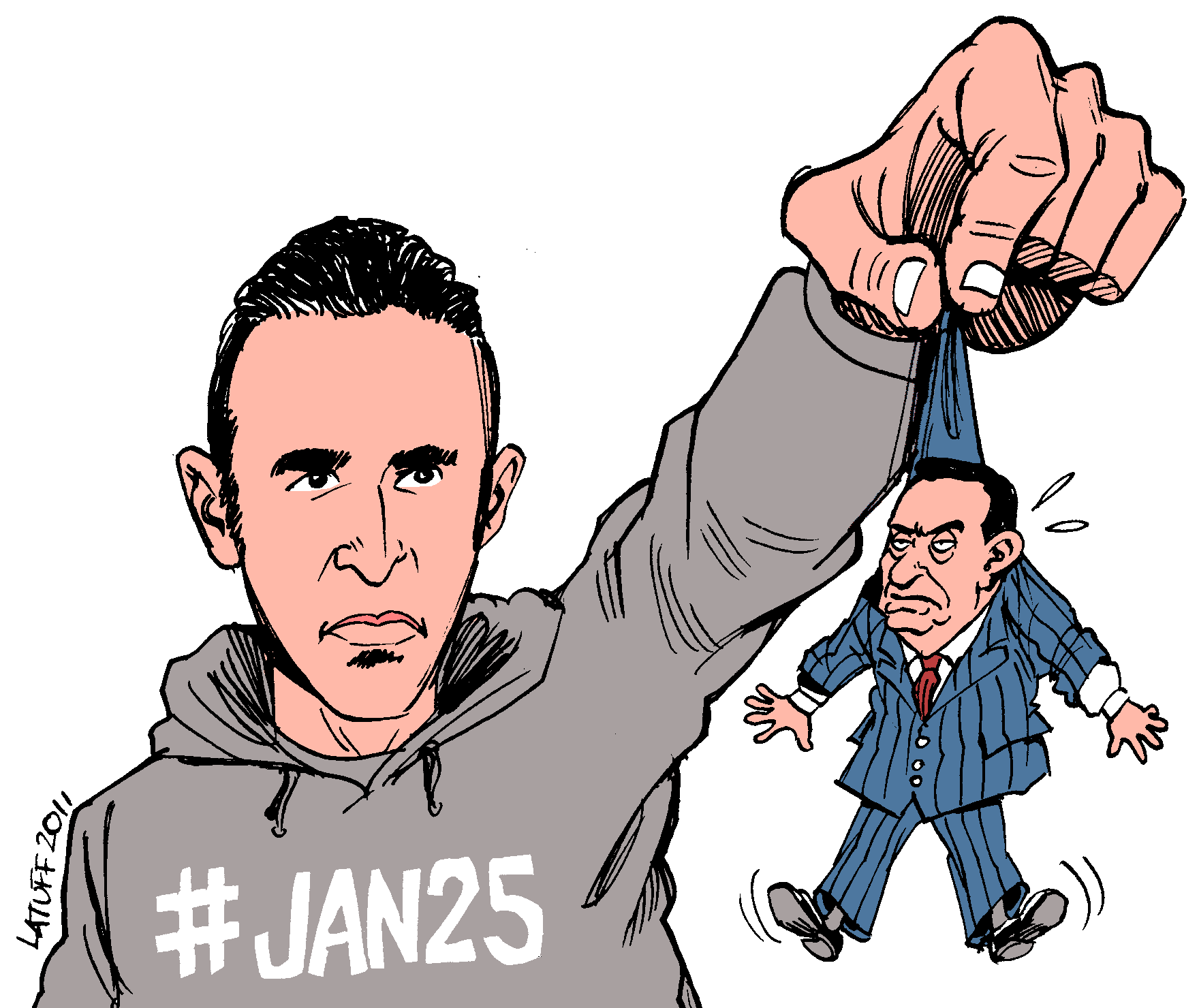Khaled Said, a 28-year-old entrepreneur from Alexandria, was beaten to death by two police officers in a public café today. Sitting in the café, Said was suddenly accosted by two plainclothes officers who allegedly tried to arrest him; when he asked to see an arrest warrant, the police officers began to beat him. Witness testimonies alleged that the officers beat Said and then dragged him out of the building, where onlookers tried to intervene but were pushed away by police. They also claimed that the officers continued to beat Said even after he had died. The officers then dumped Said’s corpse in front of the café, and an ambulance arrived moments later to take the body away.
For weeks following Said’s death, protests erupted all over Alexandria and the rest of Egypt calling for justice for Khaled and for an end to the police brutality that marked Mubarak’s police state. Many identified with Said because he was an “ordinary” Egyptian citizen—a few days after Said’s death, Google Middle East and North Africa executive Wael Ghonim made public the “We Are All Khaled Said” Facebook page. This site garnered hundreds of thousands of followers and became a known place of dissent for Egyptians on the internet.
The Egyptian news site Ahram Online reported that “Khaled’s tragic demise not only captured the imagination of Egyptians, but of people worldwide. His battered face became synonymous with police brutality, oppression, injustice, but also of resistance, courage, and finally, a revolution.” In the midst of the Tunisian “Jasmine Revolution,” Ghonim leveraged the Khaled Said Facebook page to begin a similar movement in Egypt, and he chose January 25, Police Day, to launch a protest against police brutality. This protest eventually culminated in the 18-day uprising that unseated President Mubarak.
